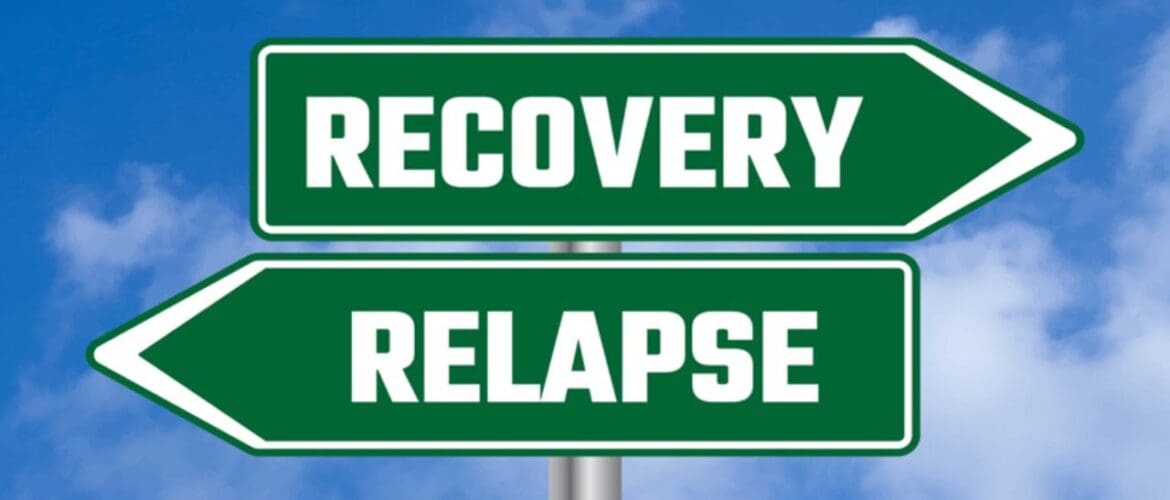When did relapse become part of the recovery process? Why don’t we describe a recurrence of cancer, heart attack, or stroke as part of recovery? What if an addict’s next relapse becomes their cause of death? Who has the authority to label someone an addict for life based on their past struggles with addiction?
The widely accepted notion that “relapse is part of recovery” is perpetuated at meetings, rehab centers, and therapy sessions nationwide, but it’s time to put an end to this dangerous mindset. As a former addict now focused on helping others through sober coaching, I want to send a clear message to fellow addicts and responsible medical professionals: this belief is fundamentally flawed.
Saying relapse is part of recovery is demoralizing and sets an expectation for failure. Even hinting that relapse is inevitable gives addicts an excuse to avoid the hard work it takes to stay sober. This toxic perspective releases addicts from accountability and allows the vicious cycle of addiction to continue. The reality is that relapse is often the result of not addressing root causes through intentional behavioral change and consistent recovery milestones.
 Reframing the Past for Recovery
Reframing the Past for Recovery
True recovery begins when addicts are brave and humble enough to view the difficult events of their past as opportunities for growth. These challenges can provide strength, hope, empathy, and clarity—tools that help us evolve into our authentic selves and find our life purpose.
In my recovery coaching practice, I spend very little time discussing clients’ histories of pain and trauma. Instead, I encourage them to consider that every event in their life—past, present, and future—is perfectly timed and placed for a reason. Life’s most difficult circumstances can become our greatest assets when we choose to see them as things that happen for us, not to us.
I focus on helping clients create a new reality for themselves, using holistic and pragmatic solutions to rediscover their purpose. The client’s decision to commit to a drug-free future is at the core of our work together.
Understanding the Triggers of Relapse
Relapse doesn’t happen the moment an addict takes their first drink or drug—it begins long before. Recognizing and managing these triggers is a vital part of any relapse prevention strategy. Some common triggers that increase the risk of relapse include:
- Boredom
- A casual attitude toward using
- Denial
- Peer pressure
- Laziness
- Improper nutrition
- Lack of self-care
- Negativity
- Stress
- Failed relationships
- Financial issues
- Losing a job
- The death of a loved one
- Fatigue
- Anger
- Loneliness
Relapse does not have to be part of recovery if addicts are willing to put in the work and prioritize their sobriety above all else. The path to a substance-free lifestyle is achievable through intention, support, and consistency.
5 Principles for Long-Term Sobriety
 1. Prioritize Self-Care
1. Prioritize Self-Care
When the chains of addiction are broken, self-care becomes essential for nurturing the mind, body, and spirit. Far from being indulgent, self-care is a vital part of physical, emotional, and mental well-being. Activities such as massages, acupuncture, meditation, reading, and sound therapy can help recovering addicts rebuild and thrive.
 2. Build a Support System
2. Build a Support System
Addiction is often isolating, so creating a strong support network is crucial for recovery. This can include recovery coaching programs, support groups, family members, or friends who are supportive and healthy. Working with an accountability partner like a sober coach introduces structure, consistent motivation, and post-rehab support. Other great options include:
- Gyms: Smaller gyms foster connection with health-conscious individuals. Hiring a personal trainer adds accountability and structure.
- Church groups: Organized religion can provide support and a sense of belonging.
- Meetups: Websites like Meetup.com can connect recovering addicts with people who share similar hobbies and interests.
 3. Stay Active
3. Stay Active
Boredom is the enemy of recovery. Sitting idle is not an option for those committed to long-term sobriety. A daily fitness routine, such as walking, jogging, or lifting weights, can keep recovering addicts energized and focused. Group classes like yoga, Pilates, or high-intensity interval training also provide opportunities to meet like-minded individuals. Movement improves overall well-being and can serve as a daily reminder of one’s progress on the recovery journey.
 4. Focus on Proper Nutrition
4. Focus on Proper Nutrition
The food we eat directly impacts our mood, energy levels, and overall well-being. Unhealthy eating can lead to lethargy and even trigger old habits. Meeting with a nutrition coach is an excellent way to learn how to replenish a body damaged by addiction and establish a healthy, sustainable diet.
 5. Engage in Volunteer Work
5. Engage in Volunteer Work
After rehab, many people struggle to find a sense of purpose. Volunteering can fill this void. Helping others in need not only repays a debt to society but also provides a fulfilling and meaningful sense of purpose.
Relapse Is Not Inevitable
Relapse is not an unavoidable part of recovery. By addressing triggers and prioritizing sobriety, addicts can break free from the cycle of addiction and reclaim their lives. Sobriety requires commitment, effort, and a willingness to do the hard work—but it is possible.
Start Your Recovery Journey with Sober Coaching
Sober Coaching is dedicated to helping individuals navigate their journey to recovery through personalized coaching and proven strategies. Our experienced coaches provide guidance, accountability, and support tailored to your unique needs, empowering you to achieve lasting sobriety and a fulfilling life.
We offer one-on-one coaching, recovery planning, and resources designed to help you stay focused and committed to your goals. Whether you’re starting your journey or seeking ongoing support, Sober Coaching is here for you every step of the way.
Discover how Sober Coaching can support your recovery. Contact us today to get started.
Tags: Addiction, Nutrition, recovery, relapse, Self-Care, Support, volunteer, Why
